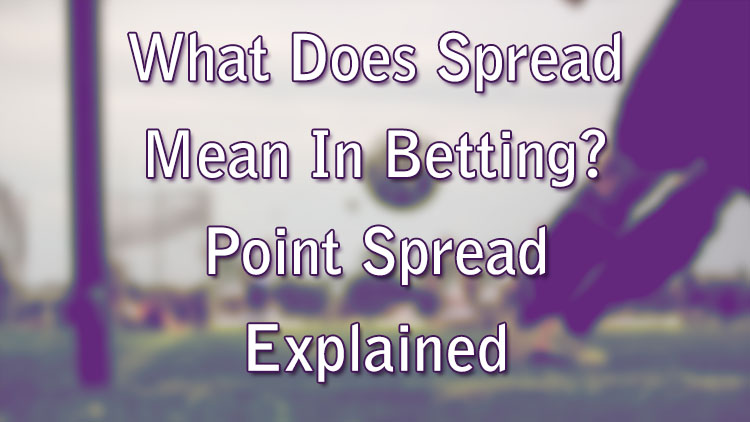
In the world of sports betting, understanding the concept of the 'spread' or 'point spread' is paramount. It's an artificial handicap created by sportsbooks to level the betting field between opponents. This guide provides an in-depth explanation of spread betting, including its workings, implications, examples, and its tax considerations, primarily in the UK and Ireland.
What Does Spread Mean In Betting?
'Spread' in sports betting refers to a prediction offered by sportsbooks on the possible outcome of a specific market for a given sports event. This prediction is expressed as a SELL-BUY range, essentially acting as a handicap to even out a matchup between opponents.
It's a tool used by online sportsbooks to ensure balanced wagering on both sides of a matchup, thus allowing them to profit from the 'vigorish' or 'juice' they charge irrespective of the team that wins or covers.
How Does Spread Betting Work?
The spread is essentially a prediction of what the margin of victory or defeat will be in a game, putting each team on equal terms from a betting perspective. If a team manages to cover the spread, it means they've beaten the handicap assigned to them.
For instance, if a team was given a -1.5 spread (favourite) and they won the game by 2 points or more, they have covered the spread. Conversely, if a team was given a +1.5 spread (underdog) and they lost the game by 1 point or won outright, they have covered the spread.
What Does The + and – Mean In Sport Betting Spread?
The '+' and '–' in sports betting spread denote the underdog and the favourite, respectively. The team with a '+' spread receives additional points as a handicap because they're expected to lose. On the other hand, the team with a '–' spread have points subtracted as they're expected to win.
For example, in a spread of -1.5/+1.5, the team with -1.5 is the favourite, while the one with +1.5 is the underdog.
How Do You Win With Point Spread?
Winning a point spread bet depends on whether the choice team 'covers the spread.' If you bet on the favourite (the team with a '–' spread), they must win by more than the spread for you to win your bet. If you wager on the underdog (the team with the '+' spread), they must either win outright or lose by less than the spread for you to win your bet.
Football Spread Betting Example
Let's consider an example. Suppose a sportsbook is quoting Total Goals in a football match at 2.8 – 3, and you decide to buy at 3, wagering £50. If the match ends with six total goals, you make a profit of £150 ((6 – 3) x £50) because the result exceeded the spread you bought at.
However, if the match ends with two total goals, you would lose £50 ((2 – 3) x £50) as the result was less than the spread you bought at.
Is Spread Betting Taxable?
Spread betting profits are not subject to tax in the UK and Ireland, meaning they are free from Capital Gains Tax, Stamp Duty, and Income Tax. This favourable tax treatment is a significant draw for punters.
Conclusion
Spread betting is a popular form of sports betting due to its potential for high returns and favourable tax treatment. However, it requires a clear understanding of the concept of 'spread' and how it impacts the outcome of your bets, and some strategic data analysis could help.
However, it's important to note that it is still betting, meaning nothing is guaranteed. Please gamble responsibly and never chase your losses.
Please note: this Wizard Slots blog post is intended as a brief informative overview of the topic, and it does not constitute gambling advice in any way. It's advised to do your own independent research for more information before placing any wagers.
